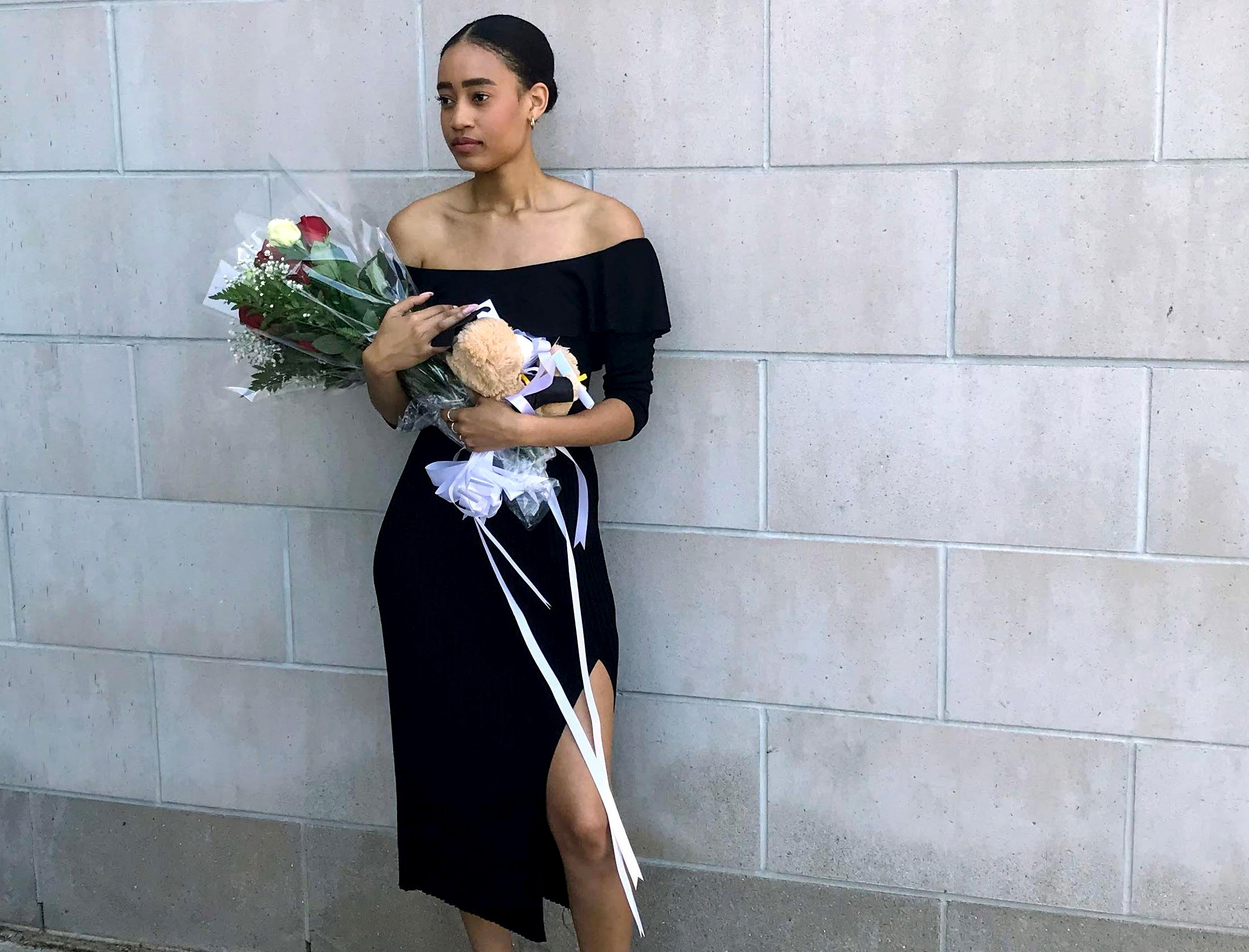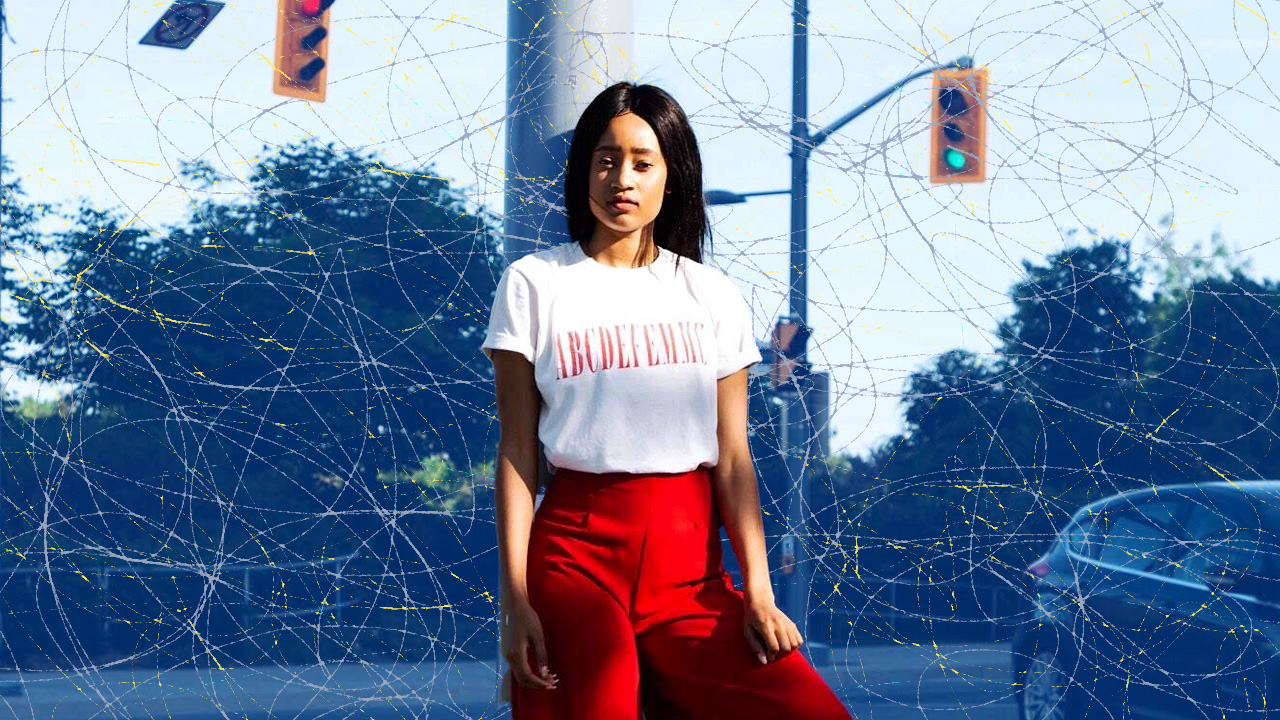What Do You Do When Your Dream Career Is Notoriously Racist?
There was a viral tweet going around last year that said something like “Dream job? I don’t have one. I don’t dream of labour.”
I’m the opposite. I like to work and, ever since I was a little girl, I’ve dreamed of becoming a journalist. I decided I would work at CTV hosting the six o’clock news. Every night I would watch Lisa LaFlamme and imitate her in my mind: the cadence of her voice, her transitions, her head tilts, her smile. I dreamed about being in her position. Even at my young age, I could sense that her work was important. Everyone listened when she spoke and the people I looked up to looked to her for information.
When “Take Your Kid to Work Day” came around, I chose to visit a close family friend who worked at Shaw Media. We got to see a live interview, an editing suite and a studio set. We even got to speak with a few kind, albeit stressed, staffers who explained to us the ups and downs of working in a television newsroom. Ultimately the cons, like the very long and unpredictable hours, outweighed the pros for me and I realized that while I loved broadcast, it wasn’t for me. But I was still committed to journalism and decided to focus on feature writing. My next steps were clear and I was more determined than ever:
Step 1: Get into one of Canada’s best journalism schools. Check.
Step 2: Don’t get kicked out during my first year. Check.
Step 3: Do an internship to get real-world experience. Check.
Step 4: Graduate on time and with Honours. Check.
Things were finally starting to fall into place. I graduated from J-school in 2019 and landed a job in communications right away. My plan was to build connections, start freelance writing, boost my resume and hopefully land a full-time gig at a print or digital publication. I was meeting the right people and feeling hopeful about my future. Until last month.
I was scrolling through Twitter, which was already more stressful than entertaining. Following the deaths of Ahmaud Arbery, Breonna Taylor, George Floyd and Regis Korchinski-Paquet, social media had become a hostile environment. Yet, like many others, I felt it was necessary to stay online to remain informed. I was right.
First I saw a statement from TSN anchor Kayla Grey, then CBC Radio producer Imani Walker, then Global News producer Alley Wilson, and finally this story from Refinery29 Canada writer Kathleen Newman-Bremang. Each one explained experiences of anti-Black racism and discrimination in Canadian media. There were countless others. Then editors at CBC, Bon Appétit, Refinery29 U.S., Complex, ET Canada, ESPN and many more were outed. Every scroll revealed a new tweet that detailed another racist experience. I read each one in disbelief. Women who look like me, women that I looked up to, women who were in positions I was dying to occupy, were being systematically silenced and stereotyped all over North America.
As a Black girl growing up in mostly white Ontario towns I had, of course, experienced racism and microaggressions in my own daily life. I’ve had white people touch my hair without asking, I’ve been mistaken for other Black girls even though we look nothing alike, I’ve been told that I don’t sound Black, that I don’t act Black, that I’m pretty for a Black girl, that I’m smart for a Black girl, that I’m lucky I’m a light-skinned Black girl. The list goes on. While I haven’t found myself the victim of newsroom racism yet, I know how uncomfortable it can feel to be the only Black person in a room. It creates a power imbalance, and one that often allows for bigoted comments and off-hand remarks to go unnoticed or be excused. From everything I read, that sounded like it was a common occurrence in this industry.

Black people, especially girls and women, live in a reality that is foreign to many. It’s a reality fraught with prejudice and discrimination. It’s knowing that our opinions are undervalued, and our talent is undermined. It’s working twice as hard for half as much. But I was ready for it—to do the hard yards—if it meant seeing my dreams realized. What I wasn’t ready for, though, were these seemingly endless stories of racism within the industry I dreamed of penetrating. And it isn’t until I look back on some of my own experiences and memories that I now understand what the innocence of my youth and excitement for my future blinded me from seeing.
There’s a reason why Lisa LaFlamme didn’t look like me, that no one on TV really did. It wasn’t an accident that there were no Black people in the hallways of Shaw Media. And that in four years at Carleton University, I didn’t have a single Black journalism instructor. It’s because the media industry is overwhelmingly white. And it’s white on purpose. A 2010 study examined visible minority leadership at Toronto media organizations. The research found that “visible minorities are under-represented among news managers and decision makers, with only 4.8% of media leaders identified as visible minorities.” The study also found minorities were under-represented in print media among columnists and experts, as hosts and reporters and in stock images and photos. In the States, Statistica reported that in 2019, only 12% of TV news employees were African American. That number is lower than the previous year.
There’s an agonizing reckoning that happens when the lushness of your dreams comes face to face with the harshness of reality. It feels like watching a building on fire. In my case, each racist story is a crackling flame that burns through another part of the structure.
As someone who has aspired to be a journalist my whole life and who is (hopefully) on the brink of achieving that goal, I’ve suddenly found myself at a heartbreaking crossroads. Reading the numerous accounts of racism in the media industry has made me grieve experiences I have not yet lived. I have questioned my abilities because of criticism that I have not even received. Do I stay or do I go?
I’m left feeling disappointed, hurt and confused. Am I silly for still wanting to be a part of an environment that has proven to be toxic for so many of my peers? Is discrimination just par for the proverbial course for all Black women, including myself? More than anything, I wonder what the future will look like—and is it one where I will be fully accepted and treated with equality?
It’s hard to say exactly in which ways I’d like to see the media industry change. I want representation, not tokenism. A welcoming environment without microaggressions or stereotyping or the silencing of Black voices. The problem is that it’s really difficult to discern action and intention from performance, especially from the outside looking in. For now, I’ll keep working hard and hope that the promises posted on Twitter and Instagram from media brands will be realized in tangible ways, for those who shared their stories—like Kayla, Imani, Alley and Kathleen—and for the ones who chose not to speak up, too.
Ultimately, I will continue to work towards being a journalist. This is work I love to do and that I think is important. I also feel a responsibility to my younger self to persevere; to remind myself that I wasn’t crazy to dream as a little girl and that I’m still not. And beyond myself, I feel a duty to work for the next generation of young Black journalists. I don’t know their names yet, but I hope that by the time they’re at the precipice of realizing their lifelong ambition, they have someone who looks like them in a position of influence to look up to.
The post What Do You Do When Your Dream Career Is Notoriously Racist? appeared first on FASHION Magazine.
